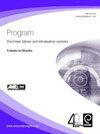Investigating the determinants of e-book adoption
Q Social Sciences
Program-Electronic Library and Information Systems
Pub Date : 2017-03-22
DOI:10.1108/PROG-04-2014-0022
引用次数: 21
Abstract
Purpose The purpose of this paper is to examine the key factors that affect users’ adoption of e-books using an extension of the unified theory of acceptance and use of technology (UTAUT) that includes the following factors: environmental concerns, perceived benefits, and benevolence trust. Design/methodology/approach The authors analyzed survey responses from 343 participants using structural equation modeling to examine the hypothesized relationships in this research model. Findings The results show that users’ adoption of e-books is determined by performance expectancy, effort expectancy, social influence, facilitating conditions, environmental concern, perceived benefit, and benevolence trust. Research limitations/implications The authors restricted this study to consumers’ adoption of e-books. Further studies could examine consumer’s adoption of other mediums, such as cutting-edge information technologies. Practical implications The results suggest that marketers should consider altering their methods of promoting e-books to attract consumers and further affect their usage intention. Originality/value This study proposes and tests an extended UTAUT model that includes the additional factors of environmental concern, perceived benefit, and benevolence trust in order to examine the influence of these factors on e-book adoption. The findings are particularly useful for assisting managers to increase e-book adoption.调查电子书采用的决定因素
本文的目的是通过对技术接受和使用统一理论(UTAUT)的扩展来研究影响用户采用电子书的关键因素,该理论包括以下因素:环境问题、感知利益和仁慈信任。设计/方法/方法作者使用结构方程模型分析了343名参与者的调查反馈,以检验该研究模型中的假设关系。结果表明,用户对电子书的使用受绩效期望、努力期望、社会影响力、便利条件、环境关注、感知利益和仁爱信任的影响。研究局限/启示作者将这项研究局限于消费者对电子书的采用。进一步的研究可以考察消费者对其他媒介的采用情况,比如尖端信息技术。研究结果表明,营销人员应该考虑改变推广电子书的方法,以吸引消费者,并进一步影响他们的使用意图。原创性/价值本研究提出并测试了一个扩展的UTAUT模型,该模型包括环境关注、感知利益和仁爱信任等附加因素,以检验这些因素对电子书采用的影响。这些发现对于帮助管理者提高电子书的使用率特别有用。
本文章由计算机程序翻译,如有差异,请以英文原文为准。
求助全文
约1分钟内获得全文
求助全文
来源期刊

Program-Electronic Library and Information Systems
工程技术-计算机:信息系统
CiteScore
1.30
自引率
0.00%
发文量
0
审稿时长
>12 weeks
期刊介绍:
■Automation of library and information services ■Storage and retrieval of all forms of electronic information ■Delivery of information to end users ■Database design and management ■Techniques for storing and distributing information ■Networking and communications technology ■The Internet ■User interface design ■Procurement of systems ■User training and support ■System evaluation
 求助内容:
求助内容: 应助结果提醒方式:
应助结果提醒方式:


